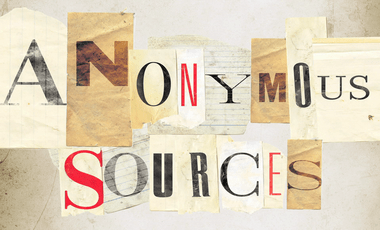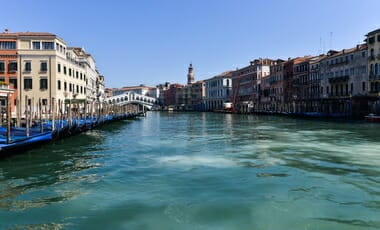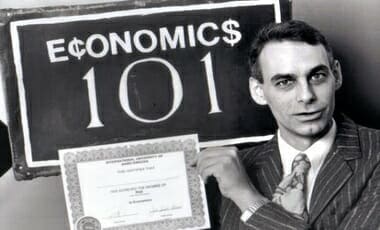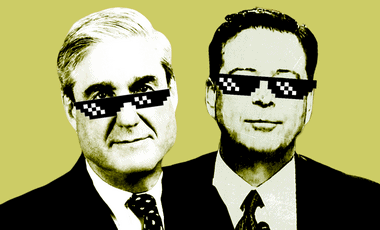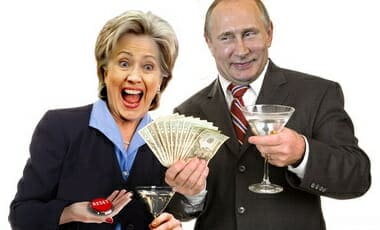A friend – in response to a challenge, posted multiple stories about Trump’s response to the Coronavirus to my single post detailing the timeline of the Trump admins response here: “Trump Acted Quickley On Coronavirus (TIMELINES)“
This was his firing away as if to make a point:
JIM
- 10 times Trump and his administration were warned about coronavirus (AXIOS)
- Trump’s daily briefings warned about COVID-19 at least a dozen times before the US outbreak, but he ‘failed to register’ the threat (BUSINESS INSIDER)
- Trump was warned in January of Covid-19’s devastating impact, memos reveal (THE GUARDIAN)
- Trump Was Warned About Virus Threat In More Than A Dozen Intelligence Reports In January, February (KAIESER HEALTH NEWS)
- Trump Received Intelligence Briefings On Coronavirus Twice In January (NPR)
- Trump Aide Warned Early on of Deadly US Coronavirus Outbreak (VOA NEWS)
(The italicized articles are completely debunked by information below – the others are highly questionable, the ones that have unnamed sources that is, and other portions of them are called into question by the timeline below.)
Besides the obvious question of, “which Western leader do you look to as a shining example of reacting in January to the crisis?” I could have easily responded to these papers who spread stories from a single anonymous source as if they are all different stories based on different [again, unnamed] sources, which, their practice of has undone almost all their stories [one example, another, and another] on the Russian Collusion Hoax, like this,
- Memory Hole: What the Media Wants You to Forget About Their Biased Coronavirus Coverage (PJ-MEDIA)
- The Media’s Top Lies and Spins About COVID-19 (REAL CLEAR POLITICS)
- The Top 10 Lies About President Trump’s Response to the Coronavirus (PJ-MEDIA)
- The China Virus Pandemic: COVID-19 Response and Recovery (PATRIOT POST)
- Pollak: Democrats Pushed Impeachment While Coronavirus Spread (BREITBART)
- China hid extent of coronavirus outbreak, US intelligence reportedly says (CNBC)
- China deliberately hid coronavirus, admonished whistleblowers (WASHINTON TIMES)
- Fauci points to China for late realization coronavirus was his ‘worst nightmare’ (WASHINGTON EXAMINER)
- China admits to destroying coronavirus samples, insists it was for safety (NY POST)
- China confirms US accusations that it destroyed early samples of the novel coronavirus, but says it was done for ‘biosafety reasons’ (BUSINESS INSIDER)
- China pressured WHO to delay global coronavirus warning: report (NY POST)
- China’s president Xi Jinping ‘personally asked WHO to hold back information about human-to-human transmission and delayed the global response by four to six WEEKS’ at the start of the COVID-19 outbreak, bombshell report claims (THE DAILY MAIL)
MY OWN SITE:
However, this does nothing to prove or disprove a point. So, I merely went to the first point made in his first linked article at AXIOS, quoting the NYTs:
AXIOS:
On Jan. 18, Health and Human Services Secretary Alex Azar first briefed Trump on the threat of the virus in a phone call, the New York Times reports. Trump made his first public comments about the virus on Jan. 22, saying he was not concerned about a pandemic and that “we have it totally under control.”
NEW YORK TIMES:
…Even after Mr. Azar first briefed him about the potential seriousness of the virus during a phone call on Jan. 18 while the president was at his Mar-a-Lago resort in Florida, Mr. Trump projected confidence that it would be a passing problem.
“We have it totally under control,” he told an interviewer a few days later while attending the World Economic Forum in Switzerland. “It’s going to be just fine.”…
Now, much like the Left’s favorite thing to do, they take Trump out of context and use this false context to create a straw man and then bludgeon it. Why did Trump say it was going to be fine? Because, according to the WALL STREET JOURNAL, Alex Azar “oversold his agency’s progress in the early days and didn’t coordinate effectively across the health-care divisions under his purview.” Trump could only report what Alex told him on the 18th.
But this January 18th discussion is not proven to have even taken place, all we have again are unnamed sources: Azar told several associates that Trump thought his warnings were ‘alarmist’, according to The Washington Post” (DAILY MAIL). And again, NEWSMAX discusses that WALL STREET JOURNAL article, saying:
Health and Human Services Secretary Alex Azar waited weeks to brief President Donald Trump on the coronavirus threat and oversold the progress of developing an effective test for the virus, The Wall Street Journal is reporting.
The newspaper said that as of Jan. 29, Azar had assured Trump the coronavirus outbreak was under control. And during the meeting with Trump, Azar said the government had never mounted a better interagency response to a crisis.
But that isn’t the only story to the story. I do not think this even reported by anonymous sources actually happened. The same people that wrongly reported using anonymous sources are now the same people using anonymous sources.
News media figures advancing “Trump-Russia collusion” narratives are now spreading misinformation about President Donald Trump and the coronavirus outbreak as part of a “permanent coup,” […..]
The Washington Post, citing anonymous sources, recently alleged that Trump was issued repeated warnings about the coronavirus through a dozen classified daily briefings between January and February.
“An article in the Washington Post … said that in [his] presidential daily briefings, Trump repeatedly ignored warnings of the coronavirus,” Smith recalled. Acting DNI Richard Grenell tweeted at the authors of this piece. [He] said. ‘That’s not true. We told you this is not true, and yet you only included our denial in the ninth paragraph.’”
This isn’t true. And we told you this before you wrote. And you put the DNI denial of your premise in paragraph 9. https://t.co/kVYJvGxL0r
— Richard Grenell (@RichardGrenell) April 28, 2020
Smith continued, “So these two Washington Post journalists were a core Russiagate conspiracy team. Again, unfortunately, we’re seeing the same thing unfold again and again, and that’s why the title of the book is The Permanent Coup.”…
And the LEGAL INSURRECTION does a bang-up job on the same subject:
According to the Washington Post, the president’s classified daily briefings included “warnings about the novel coronavirus in more than a dozen classified briefings prepared for President Trump in January and February, months during which he continued to play down the threat.”
The unnamed sources were foregrounded, while an actual named source refuting the claim was not mentioned until paragraph eight:
A White House spokesman disputed the characterization that Trump was slow to respond to the virus threat. “President Trump rose to fight this crisis head-on by taking early, aggressive historic action to protect the health, wealth and well-being of the American people,” said spokesman Hogan Gidley. “We will get through this difficult time and defeat this virus because of his decisive leadership.”
As if that’s not bad enough, it’s only in the ninth paragraph that WaPo gets around to noting that the suggestion the president ignored his presidential daily briefing (PDB) has been denied by the Director of National Intelligence (DNI), the office responsible for the PDB.
This isn’t true. And we told you this before you wrote. And you put the DNI denial of your premise in paragraph 9. https://t.co/kVYJvGxL0r
— Richard Grenell (@RichardGrenell) April 28, 2020
- The Office of the Director of National Intelligence is responsible for the PDB. In response to questions about the repeated mentions of coronavirus, a DNI official said, “The detail of this is not true.” The official declined to explain or elaborate.
So WaPo contacted the DNI about claims the president ignored Wuhan coronavirus warnings in Jan/Feb PDB’s, and the DNI responded that the “detail of this is not true.” What do they need to explain here? Maybe WaPo needs to provide its list of questions so that we can make that determination ourselves? I’m pretty sure the context would greatly improve our understanding of the DNI response… and undermine the WaPo smear, thus the absence of said context.
It’s not actually clear what the point of the WaPo article is except to smear the president with the false implication that his administration ignored the Wuhan coronavirus until March. This smear is completely and demonstrably false.
Of course, the mindless, anti-Trump stenographers who make up the legacy and leftstream media “covered” the questionable story, all linking to this flimsy WaPo hit piece that provides no evidence to support—and that actually refutes—its own claim.
Vanity Fair is now repeating the false Washington Post narrative. As we have said multiple times, this story is not true. https://t.co/0h0jbwiulo
— Richard Grenell (@RichardGrenell) April 28, 2020
- Business Insider: “Trump’s daily briefings warned about COVID-19 at least a dozen times before the US outbreak, but he ‘failed to register’ the threat”
- CNN: “The intelligence community did its job, but Trump didn’t do his”
- MSN: “Trump reportedly ignored intel briefings on coronavirus threat”
- NYMag: “Trump Informed of Coronavirus Threat in January in Briefings He’s Known Not to Read: Report”
- CNN (again): “Washington Post: US intelligence warned Trump in January and February as he dismissed coronavirus threat”
Setting aside for the moment the fact that a global pandemic of this sort is new to everyone in the world and that no one, including top virologists, has answers, keep in mind that the first U.S. death from Wuhan coronavirus was reported on February 29th in Seattle.
What was Trump doing about the Wuhan coronavirus in January and February when he was supposedly ignoring the potential crisis?
Oh, right, setting up a coronavirus task force and issuing travel restrictions on China, well before the first U.S. death occurred. How did he know to take these actions if he was ignoring his daily briefings? Weird, right?…
(READ THE REST – EXCELLENT POST – it includes a timeline as well)
Mollie Hemingway says it best:
Hemingway began by noting that the “Russia narrative” predates the Mueller probe, having begun circulating during the 2016 election after the creation of the infamous Clinton campaign-funded Steele dossier, which pushed the theory that then-Republican candidate Donald Trump was a “Russian agent.” “We have, for the last three years … frequently [witnessed] hysteria about treasonous collusion with Russia to steal the 2016 election,” Hemingway told the panel. “The fact [is] that there are no more indictments coming and the fact [is] that all of the indictments that we’ve seen thus far have been for process crimes or things unrelated to what we were told by so many people in the media was ‘treasonous collusion’ to steal the 2016 election.” “If there is nothing there that matches what we’ve heard from the media for many years, there needs to be a reckoning and the people who spread this theory both inside and outside the government who were not critical and who did not behave appropriately need to be held accountable,” she added. THE FEDERALIST has a printing of the HHS timeline for January that shows that the propositions made by these Leftist newspapers are not revealing the whole timeline to their readers: …The Wall Street Journal should do a lot better; they asked Azar for the truth. He gave it to them. They chose not to report it. For those who want to know, here is HHS’s offical timeline of what happened in January: December 31: CDC, including Director Robert Redfield, learns of a “cluster of 27 cases of pneumonia of unknown etiology” reported in Wuhan, China. JANUARY 11: FIRST DEATH REPORTED IN CHINA January 13: NIH shares their vaccine sequence with a pharmaceutical manufacturer. JANUARY 21: FIRST U.S. CASE CONFIRMED (FROM TRAVEL)[1] January 21: CDC activates its Emergency Operations Center. JANUARY 22: ALL OUTBOUND TRAINS AND FLIGHTS FROM WUHAN CANCELED January 23: ASPR convenes a Disaster Leadership Group (DLG), to align government-wide partners regarding the outbreak situation, communications strategies, and the potential medical countermeasure pipeline. The same week, conversations begin with manufacturers of N95 masks, enabling mask production on U.S. soil to rise from about 250 million a year in January to about 640 million a year in March. JANUARY 26: FIVE U.S. CASES CONFIRMED, ALL TRAVEL-RELATED January 26: ASPR holds first meetings of healthcare resilience, medical countermeasure development, and supply chain task forces, which continue several times a week or daily in the coming weeks. Yes, Trump acted as soon as the news of the virus was available. And as we know from the results, stringency of lockdowns did not translate into how many deadly infections there were: (Click Graphic To Enlarge) But, as our next chart shows, there’s little correlation between the severity of a nation’s restrictions and whether it managed to curb excess fatalities — a measure that looks at the overall number of deaths compared with normal trends.
January 1: CDC begins developing situation reports, which are shared with HHS.
January 3: Director Redfield emails and speaks on the phone with Dr. George Gao, Director of the China Center for Disease Control and Prevention.
January 3: Director Redfield speaks with Secretary Azar, and HHS notifies the National Security Council (NSC).
January 4: Director Redfield emails Dr. Gao again and offers CDC assistance, stating, “I would like to offer CDC technical experts in laboratory and epidemiology of respiratory infectious diseases to assist you and China CDC in identification of this unknown and possibly novel pathogen.”
January 6: At the request of Secretary Azar, Director Redfield sends formal letter to China CDC offering full CDC assistance.
January 6: CDC issues a Level 1 Travel Watch for China.
January 6: National Institute of Allergy and Infectious Diseases (NIAID) Director Anthony Fauci begins doing interviews on the outbreak.
January 7: CDC establishes a 2019 nCoV Incident Management Structure to prepare for potential U.S. cases and to support the investigation in China or other countries, if requested.
January 8: CDC distributes an advisory via the Health Alert Network, which communicates to state and local public health partners, alerting healthcare workers and public health partners of the outbreak.
January 9: CDC and FDA begin collaborating on a diagnostic test for the novel coronavirus.
January 10: China shares viral sequence, allowing NIH scientists to begin work on a vaccine that evening.
JANUARY 13: 41 CASES IN CHINA, FIRST CASE REPORTED OUTSIDE CHINA
January 14: The National Security Council begins daily Novel Coronavirus Policy Coordination Council meetings.
January 14: WHO tweets: “Preliminary investigations conducted by the Chinese authorities have found no clear evidence of human-to-human transmission of the novel #coronavirus (2019-nCoV) identified in #Wuhan, #China.”
January 17: CDC and Customs and Border Protection began enhanced screening of travelers from Wuhan at three airports that receive significant numbers of travelers from that city, expanded in the following week to five airports, covering 75–80 percent of Wuhan travel.
January 17: CDC hosts its first tele-briefing on the virus, with Dr. Nancy Messonnier, Director of the National Center for Immunization and Respiratory Diseases, who emphasizes “this is a serious situation” and “we know [from the experience of SARS and MERS that] it’s crucial to be proactive and prepared.”
January 17: CDC posts interim guidance, updated regularly in the coming weeks and months, for collecting, handling, and testing clinical specimens for the novel coronavirus, includingbiosafety guidelines for laboratories.
January 18: CDC publishes interim guidance on how to care for novel coronavirus patients at home who do not require hospitalization.
January 20: The Chinese government confirms human-to-
January 21: The Biomedical Advanced Research and Development Authority (BARDA, part of the Office of the Assistant Secretary for Preparedness and Response, or ASPR) begins holding market research calls with industry leading diagnostics companies to gauge their interest in developing diagnostics for the novel coronavirus and to encourage initiating development activities.
January 21: CDC holds its second tele-briefing on the virus, with officials from Washington State, to discuss the first U.S. case, and Dr. Messonnier, who notes “CDC has been proactively preparing for an introduction of the virus here” and that a CDC team was deployed to Washington.
January 21: CDC posts interim guidance, updated regularly in the coming months, on how to prevent the spread of the novel coronavirus in homes and other settings.
January 21: Secretary Azar discusses coronavirus with Lou Dobbs on Fox Business Network, noting “we have been heavily engaged at the outset” of the outbreak, with the CDC and the rest of HHS working under the President’s direction to develop testing and alert healthcare providers.
January 22: Secretary Azar signs a memorandum from CDC Director Redfield determining that the novel coronavirus could imminently become an infectious disease emergency, which allows HHS to send a request to the Office of Management and Budget to access $105 million from the Infectious Disease Rapid Response Reserve Fund.
January 22: FDA, working with test developers, shares an authorization application template with a diagnostic test developer for the first time.
January 22: ASPR stands up an interagency diagnostics working group with BARDA, CDC, FDA, NIH, and the Department of Defense (DOD).
January 22: HHS’s Office of Refugee Resettlement began flagging any children referred from China for risk assessments and, if indicated by their travel and exposure history, for quarantine for up to 14 days before being placed in the general community of the shelter. Screenings expanded to children referred from Iran, Italy, Japan and South Korea on March 2.
January 24: ASPR forms three government-wide task forces—on healthcare system capacity and resilience, development of medical countermeasures (diagnostics, therapeutics, and vaccines), and supply chains—as part of work under Emergency Support Function 8 of the National Response Framework.
January 24: CDC hosts its third tele-briefing on the virus, with Dr. Nancy Messonnier and officials from Illinois, where CDC has deployed a team to respond to the second U.S. case, from travel. Dr. Messonnier notes, “We are expecting more cases in the U.S., and we are likely going to see some cases among close contacts of travelers and human to human transmission.”
January 24: CDC publicly posts its assay for the novel coronavirus, allowing the global community to develop their own assays using the CDC design.
January 25: Five days before WHO’s declaration of a public health emergency of international concern, Secretary Azar preemptively notifies Congress of his intent to use $105 million from the Infectious Disease Rapid Response Reserve Fund.
January 27: In a Washington, D.C., speech, Secretary Azar shares that HHS is “proactively preparing for the arrival of the novel coronavirus on our shores,” noting that “the novel coronavirus is a rapidly changing situation, and we are still learning about the virus.” “While the virus poses a serious public health threat, the immediate risk to Americans is low at this time,” Azar says, noting that he spoke on the morning of January 27 with China’s Minister of Health and WHO Director-General Tedros speak to discuss the novel coronavirus.
January 27: CDC hosts a tele-briefing with Dr. Nancy Messonnier, who notes that new travel recommendations are coming and that “there may be some disruptions” to Americans’ lives as a result of the public health response, but that “this virus is not spreading in the community” in the U.S.
January 27: CDC and State Department issue Level 3 “postpone or reconsider travel” warnings for all of China.
January 27: FDA begins providing updates about processes for approval and authorization to developers of vaccines, therapeutics, diagnostics, and other countermeasures for the novel coronavirus.
January 27: CDC’s Deputy Director for Infectious Diseases, Jay Butler, holds a call with the nation’s governors on the novel coronavirus.
January 28: HHS hosts press briefing by Secretary Azar, Dr. Fauci, Director Redfield, and Dr. Messonnier. Azar says, “Americans should know that this is a potentially very serious public health threat, but, at this point, Americans should not worry for their own safety.” He underscores, “This is a very fast moving, constantly changing situation…. Part of the risk we face right now is that we don’t yet know everything we need to know about this virus. But, I want to emphasize, that does not prevent us from preparing and responding.”
January 28: CDC posts interim guidance, updated regularly in the coming months, for airline crews regarding the novel coronavirus.
January 29: The White House announces the establishment of the Coronavirus Task Force, which begins daily meetings.
January 29: CDC hosts a tele-briefing with Dr. Messonnier, who notes that “despite an aggressive public health investigation to find new cases [in the U.S.], we have not.”
January 29: CDC posts infection prevention and control recommendations for novel coronavirus patients in healthcare settings, updated regularly in the coming months.
January 29: The Chinese government sends email to HHS acknowledging offer of U.S. expert assistance; HHS begins soliciting nominees for mission from across the department.
January 29: ASPR, CDC, FDA, NIAID, and DOD host a listening session with industry—1,468 participants—on medical countermeasure development, health system preparedness, supply resilience, and medical surge needs.
January 29: The first repatriation flight from Wuhan, China arrives at March Air Reserve Base in California, beginning the safe repatriation of Americans and marking the first use of federal quarantine power in more than 50 years. The operation eventually totals more than 3,000 repatriations, with citizens from Wuhan and passengers from cruise ships. Repatriated Americans praise the work of the quarantine teams—including a couple who spent an extended honeymoon at Lackland Air Force Base in Texas.
JANUARY 30: SIXTH AND SEVENTH CASES CONFIRMED IN THE U.S., CLOSE CONTACTS OF TRAVEL-RELATED CASE
January 30: CDC hosts a tele-briefing with Director Redfield, Dr. Messonnier, and officials from Illinois, where a sixth case is identified, in a spouse of a confirmed case who had traveled to China. Director Redfield notes that most cases around the world outside of China are close contacts of travelers, and “the full picture of how easy and how sustainable this virus can spread is unclear.” (A seventh case is identified later that evening.)
January 30: Department of State issues Level 4 warning, “do not travel,” for all of mainland China.
January 30: The Trump Administration hosts a call with Secretary Azar, Director Redfield, Dr. Fauci, and others with the nation’s governors to present the Administration’s action plan on responding to the outbreak.
January 30: In an appearance on Fox News, Secretary Azar notes that, whether the WHO declares a public health emergency of international concern (declared January 31), “That doesn’t change anything about what we are doing here in the United States. … The President is ensuring that we are proactively preparing and also taking the necessary steps to prevent or mitigate any potential further spread here in the United States.”
January 30: Trump Administration budget officials begin discussions about funding needed for development of vaccines and therapeutics, purchases of Personal Protective Equipment for the Strategic National Stockpile, surveillance and testing, and state and local support.
January 30: ASPR launches a coronavirus portal to receive market research packages and meeting requests from industry stakeholders interested in developing or manufacturing medical countermeasures.
January 31: At the recommendation of his public health officials, President Trump issues historic restrictions on travel from Hubei and mainland China, effective February 2.
January 31: Secretary Azar signs a declaration of a nationwide Public Health Emergency, which allowed HHS to begin using a range of emergency authorities and flexibilities, and, together with other subsequent declarations, would allow emergency flexibilities for healthcare providers. At a White House briefing, he notes, “The risk of infection for Americans remains low, and with these and our previous actions, we are working to keep the risk low. It is likely that we will continue to see more cases in the United States in the coming days and weeks, including some limited person-to-person transmission.”
January 31: CDC hosts a tele-briefing with Dr. Messonnier, who notes possible reports of asymptomatic transmission and says, “We are preparing as if this were the next pandemic, but we are hopeful still that this is not and will not be the case.”
January 31: FDA holds a virtual meeting with American Clinical Laboratory Association about the emergency use authorization application process.
While not a gauge of whether the decisions taken were the right ones, nor of how strictly they were followed, the analysis gives a clear sense of each government’s strategy for containing the virus. Some — above all Italy and Spain — enforced prolonged and strict lockdowns after infections took off. Others — especially Sweden — preferred a much more relaxed approach. Portugal and Greece chose to close down while cases were relatively low. France and the U.K. took longer before deciding to impose the most restrictive measures.
